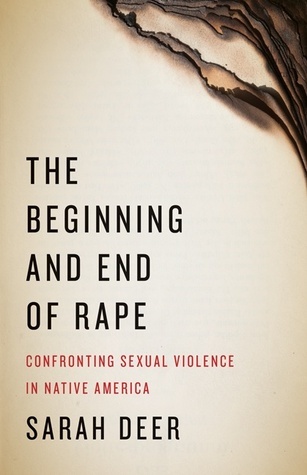What do you think?
Rate this book


232 pages, Paperback
First published November 1, 2015
Deer, a law professor, devotes a significant part of this book to suggesting ways that tribes could deal with rape. She believes, and draws on other sources that assert, that rape was not a large enough social problem before colonialism for there to be a legal framework to address it in native societies. Rape was and remains a tool of colonial domination, and the Common Law history of rape works against all victims. Deer outlines the history of the legal framework in US law and problems with jurisdiction. She also gives some history of how native activists in the 19th century spoke up against rape, including the memoir of Sarah Winnemucca, Life Among the Piutes.